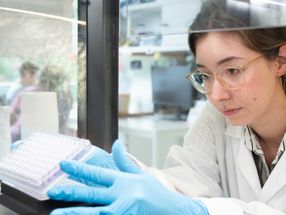Gene therapy is a 'disruptive science' ready for commercial development
Advertisement
The time for commercial development of gene therapy has come. Patients with diseases treatable and curable with gene therapy deserve access to the technology, which has demonstrated both its effectiveness and feasibility, says James Wilson, MD, PhD, Editor-in-Chief of Human Gene Therapy in a provocative commentary and accompanying videocast. Human Gene Therapy and Human Gene Therapy (HGT) Methods are peer-reviewed journals published by Mary Ann Liebert, Inc..
Until recently, gene therapy has been reserved for severe diseases with few treatment options. But the recent report of its successful use to treat hemophilia B, which would offer patients a therapeutic alternative that could replace the need for regular, lifelong protein replacement infusions, has brought gene therapy to the forefront as a technology capable of competing with and disrupting traditional forms of treatment. Although gene therapy for hemophilia B is still in early-stage clinical testing, a similar approach is in development to treat hemophilia A, and together these life-threatening diseases represent a $6.5 billion market for current protein replacement therapies.
The technical feasibility of gene therapy "has been established in multiple diseases and with different technology platforms," says Dr. Wilson, in the Commentary "It's Time for Gene Therapy to Get Disruptive!" He predicts that "2012 will usher in an era of commercial development of gene therapy that, although likely to begin slowly, will quickly gather momentum."
"The scientific community has been promising for years that disruptive change would follow from investments in biomedical research, such as the doubling of NIH and the sequencing of the human genome," says Terence R. Flotte, MD, Celia and Isaac Haidak Professor of Medical Education Dean, Provost, and Executive Deputy Chancellor, Gene Therapy Center, and Departments of Pediatrics and Microbiology & Physiologic Systems, University of Massachusetts Medical School. "Dr. Wilson's comments strike at the heart of fulfilling that promise. Now that the technology is working, the next phase is to develop commercially viable models for gene therapy in the health care marketplace, so that these therapies can be delivered to the patients who need them."
Original publication
Other news from the department business & finance
Most read news
More news from our other portals
See the theme worlds for related content
Topic world Gene therapy
Genetic diseases once considered untreatable are now at the center of innovative therapeutic approaches. Research and development of gene therapies in biotech and pharma aim to directly correct or replace defective or missing genes to combat disease at the molecular level. This revolutionary approach promises not only to treat symptoms, but to eliminate the cause of the disease itself.

Topic world Gene therapy
Genetic diseases once considered untreatable are now at the center of innovative therapeutic approaches. Research and development of gene therapies in biotech and pharma aim to directly correct or replace defective or missing genes to combat disease at the molecular level. This revolutionary approach promises not only to treat symptoms, but to eliminate the cause of the disease itself.



























































